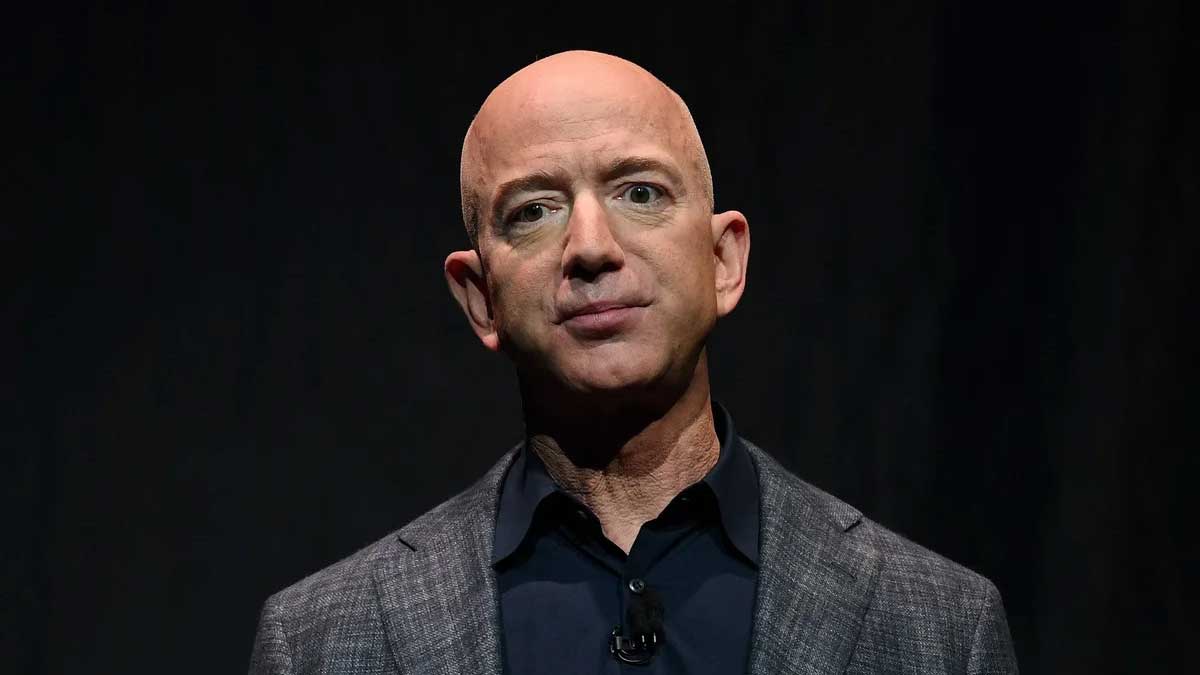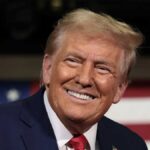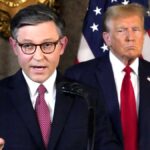- Home
- Billionaires
- Investing Newsletters
- 193CC 1000
- Article Layout 2
- Article Layout 3
- Article Layout 4
- Article Layout 5
- Article Layout 6
- Article Layout 7
- Article Layout 8
- Article Layout 9
- Article Layout 10
- Article Layout 11
- Article Layout 12
- Article Layout 13
- Article Layout 14
- Article Sidebar
- Post Format
- pages
- Archive Layouts
- Post Gallery
- Post Video Background
- Post Review
- Sponsored Post
- Leadership
- Business
- Money
- Small Business
- Innovation
- Shop
Recent Posts
Bezos Defends Blocking Washington Post Endorsements

Billionaire Jeff Bezos, the owner of the Washington Post, has found himself in the midst of controversy after defending his decision to prohibit the newspaper from endorsing any presidential candidates. This choice has prompted significant backlash, resulting in staff resignations and reports of 200,000 digital subscription cancellations, equivalent to approximately 8% of the publication’s paid circulation.
In an op-ed published on Monday, Bezos articulated his rationale, stating that presidential endorsements do not significantly influence election outcomes. He contended that undecided voters, particularly in battleground states like Pennsylvania, are unlikely to be swayed by a newspaper’s endorsement. He remarked, “No undecided voters in Pennsylvania are going to say, ‘I’m going with Newspaper A’s endorsement.’” This assertion reflects Bezos’s view that the influence of endorsements is overstated and that their absence would not adversely affect the electoral process.
Bezos emphasized that his decision to halt endorsements stems from a desire to eliminate the perception of bias and maintain the newspaper’s independence. He described this choice as a “principled decision,” asserting that endorsements contribute to a broader public belief in media bias, which he views as detrimental to the integrity of journalism. In his words, “Presidential endorsements create a perception of bias… of non-independence.” By stepping away from the practice of endorsing candidates, Bezos believes the Washington Post can take a meaningful step toward restoring trust among its readership.
Reflecting on the timing of the decision, Bezos expressed regret, suggesting that the change should have been made sooner—preferably well before the election cycle and its accompanying emotional turbulence. He attributed the timing of the announcement to “inadequate planning” rather than any deliberate strategy. This acknowledgment of timing issues underscores the complexities of managing editorial decisions in a highly charged political environment.
While he asserted that there was no quid pro quo involved in the decision, Bezos did address the coincidental timing of former President Donald Trump’s meeting with Dave Limp, CEO of Blue Origin, on the same day the Washington Post announced its policy change. He noted that he was aware this meeting could be interpreted as having a connection to the endorsement decision, stating, “I sighed when I found out, because I knew it would provide ammunition to those who would like to frame this as anything other than a principled decision.” Bezos clarified that he was unaware of the meeting prior to its occurrence, and that even Limp did not know about the Washington Post’s decision at that time.
Amid the ongoing debate about media bias, Bezos cited recent surveys indicating a decline in public trust toward news organizations. He framed his decision to eliminate endorsements as part of a broader effort to enhance trust in the media and counter the rising tide of “off-the-cuff podcasts, inaccurate social media posts, and other unverified news sources.” His comments highlight an increasing concern among media leaders regarding the credibility of traditional journalism in an era dominated by misinformation and sensationalism online.
In his op-ed, Bezos articulated the reality that many individuals believe media organizations possess a bias. He stated, “Most people believe the media is biased. Anyone who doesn’t see this is paying scant attention to reality, and those who fight reality lose.” Although he acknowledged that simply choosing not to endorse candidates would not be enough to significantly improve public trust, he views the decision as a “meaningful step in the right direction.” This assertion aligns with his broader vision of enhancing journalistic integrity and fostering a more informed public.
The controversy surrounding the Washington Post’s endorsement policy has resulted in a palpable sense of unrest among its staff. Reports emerged last week that Bezos had intervened to block the endorsement of Vice President Kamala Harris, a move that left editorial and opinion journalists within the organization stunned. The newspaper’s editorial board had already drafted an endorsement, which received support from editorial page editor David Shipley. This abrupt reversal led to the resignation of at least three members of the editorial board, and over 200 staff members penned an open letter to management demanding clarity on the situation.
The fallout from Bezos’s decision illustrates the precarious balance media organizations must navigate between ownership influence and journalistic independence. The tensions within the Washington Post reflect a broader debate within the industry about how to maintain credibility and public trust in a highly polarized political climate. The issue raises critical questions about the role of endorsements, the potential for perceived conflicts of interest, and the need for transparency in media operations.
In conclusion, Jeff Bezos’s decision to halt presidential endorsements at the Washington Post has sparked significant controversy, leading to staff resignations and a wave of subscription cancellations. His op-ed highlights the complexities of maintaining journalistic integrity while addressing public concerns about media bias. As the landscape of news consumption continues to evolve, the challenges faced by the Washington Post and similar organizations underscore the critical importance of transparency, trust, and accountability in journalism.
Recent Posts
Categories
- 193cc Digital Assets2
- 5G1
- Aerospace & Defense46
- AI37
- Arts3
- Banking & Insurance11
- Big Data3
- Billionaires426
- Boats & Planes1
- Business328
- Careers13
- Cars & Bikes76
- CEO Network1
- CFO Network17
- CHRO Network1
- CIO Network1
- Cloud10
- CMO Network18
- Commercial Real Estate7
- Consultant1
- Consumer Tech180
- CxO1
- Cybersecurity68
- Dining1
- Diversity, Equity & Inclusion4
- Education7
- Energy8
- Enterprise Tech29
- Events11
- Fintech1
- Food & Drink2
- Franchises1
- Freelance1
- Future Of Work2
- Games141
- GIG1
- Healthcare78
- Hollywood & Entertainment186
- Houses1
- Innovation42
- Investing2
- Investing Newsletters4
- Leadership65
- Lifestyle11
- Manufacturing1
- Markets20
- Media193
- Mobile phone1
- Money13
- Personal Finance2
- Policy567
- Real Estate1
- Research6
- Retail1
- Retirement1
- Small Business1
- SportsMoney33
- Style & Beauty1
- Success Income1
- Taxes2
- Travel10
- Uncategorized8
- Vices1
- Watches & Jewelry2
- world's billionaires395
Related Articles
Netflix Secures 2027 and 2031 Women’s World Cup Rights
Netflix has clinched an exclusive streaming deal for the next two FIFA...
By 193cc Agency CouncilDecember 20, 2024Meta Fixes Facebook, Instagram, WhatsApp Outages
Meta, the parent company of Facebook, Instagram, and WhatsApp, faced significant outages...
By 193cc Agency CouncilDecember 12, 2024Roy Jones Jr. Confident He Can Beat Jake Paul, Issues Challenge
Boxing legend Roy Jones Jr. has made waves by declaring that he’s...
By 193cc Agency CouncilDecember 11, 2024Tsunami Warning Lifted After 7.0 Quake Off California Coast
A tsunami warning that affected large portions of northern California and Oregon,...
By 193cc Agency CouncilDecember 6, 2024















Leave a comment